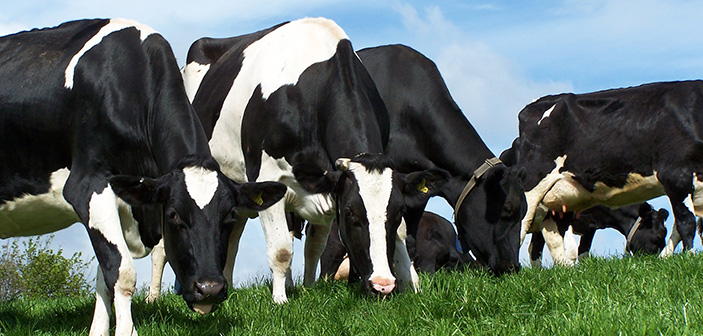Efficient use of grass by precision feeding can help dairy producers increase milk from forage, with high purchased feed prices putting pressure on margins, explained nutritional supplement manufacturer UFAC-UK.
“With plenty of forage on most farms this season, margins can be achieved by ensuring optimal DMI [dry matter intake],” explained UFAC-UK ruminant technical manager Mike Chown.
Mr Chown advised farmers to focus on what they want the cows to achieve, and consider how they can harness seasonality benefits.
Focusing on the nutritional supplementation required to support grazing to maximise the price received from contracts and increase margins.
“We want cows to graze efficiently and to milk in a way that can achieve those best returns, through a combination of good quality milk and hitting the profile,” he explains.
“To maximise forage DMIs, we first need to know what we are feeding, so we should regularly analyse all forages, and balance them with the correct nutrients, such as sugar, starch, rumen protein, by-pass protein and rumen inert fatty acids,” explained Mr Chown.
“We must ensure speed of break down in the rumen is matched, while at the same time, paying attention to acid loading and rumen pH. This will optimise rumen microbes to promote fibre digestion and intakes, most cost-effectively,” he added.
‘Little bombs’
Once microbial protein and VFAs (volatile fatty acids) from the rumen have been optimised, Mr Chown said adding ‘little bombs’ high in the specified nutrients, such as rumen inert/bypass proteins, will help meet requirements. Forage rations are typically low in these.
“When doing this, it is important that every purchased feed is most cost-effective for the nutrient it is contributing to, for example, not just looking at crude protein, but also looking at the cost of rumen degradable and rumen undegradable protein such as amino acids,” continued Mr Chown.
“Finally, we need to keep cows healthy and fertile and meet her specific requirements through her production cycle, so when looking at cutting feed costs, we need to ensure we target the correct animals and look after the transition and early lactation cows until confirmed in calf,” said Mr Chown.
Mr Chown said suitable adjustments and additions to dairy diets can have a big impact on performance, health and fertility, and therefore margins.
“If you feed for a return, then correctly balanced fat supplements have an essential place in diets, particularly as maintaining milk quality, fertility and mobility can be a challenge when cows are at grass,” he concluded.
Read more from UFAC-UK here.


